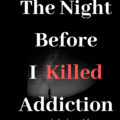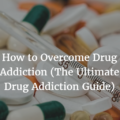According to the American Psychiatric Association, addiction is a chronic dysfunction of the brain system that involves reward, motivation, and memory. It’s about the way your body craves a substance or behavior, especially if it causes a compulsive or obsessive pursuit of “reward” and lack of concern over consequences.
Someone experiencing an addiction will:
- be unable to stay away from the substance or stop the addictive behavior
- display a lack of self-control
- have an increased desire for the substance or behavior
- dismiss how their behavior may be causing problems
- lack an emotional response
Over time, addictions can seriously interfere with your daily life. People experiencing addiction are also prone to cycles of relapse and remission. This means they may cycle between intense and mild use. Despite these cycles, addictions will typically worsen over time. They can lead to permanent health complications and serious consequences like bankruptcy.
Keys to Successful Addiction Treatment
Overcoming an addiction is not easy –it takes courage and commitment. However, as many people have discovered, the rewards of going clean and staying sober are worth the effort. Starting treatment is an important first step toward overcoming drug use. If you follow the guidelines listed below, your treatment will be much more effective, and you will have a better chance of staying drug-free. These keys to successful treatment are based on medical research and the experiences of thousands of patients who successfully stopped using drugs during treatment and remained drug-free afterward.
- Stay in treatment. Above all else, stay in treatment! Patients who stay in treatment have a much better chance of staying drug-free than those who drop out.
- It may be hard at the beginning. Especially for the first month of treatment, you may feel very unmotivated to continue. This is normal — most patients who drop out of treatment do so in the first 30 days. You need to be prepared for this feeling so you can better resist the urge to drop out.
- Obey the program’s rules — they’re in place to help you become drug-free. Also, many programs will stop your treatment if you don’t follow the rules.
- Develop a good relationship with your doctor or counselor. Many people who have gone on to become drug-free have found that trusting relationships with their counselors were important in helping them complete treatment. Make a commitment to your treatment and to changing your life. Don’t just go to all your treatment sessions –take part in them, too.
- Follow your treatment plan. Follow the treatment plan and use the services that your doctor or counselor recommends.
- Don’t let a lapse become a relapse. Many people lapse and use drugs once, twice, or even more times during treatment. If this happens to you, it doesn’t mean that your treatment has failed –but it does mean that you’re having trouble. Talk to your doctor or counselor about the lapse, and let them help you stop it from becoming a relapse –a return to drug abuse.
- Ask for help if you need it! That’s what your doctor or counselor is there for.
- Be prepared to make some major life changes. It’s very hard to stay sober when the people around you are still using drugs. You will need to stay away from friends who use drugs and, if possible, get out of houses or even neighborhoods where drug use is going on.
Follow these keys to treatment and you will be on your way to a drug-free life!





